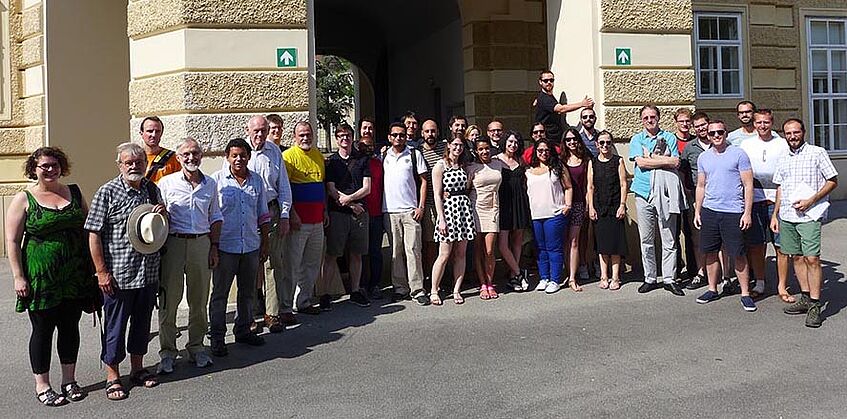USS-SWC 2015 – The Computational Turn. Simulation in Science
The 15th Vienna Summer University was held on July 6–17, 2015.
Lecturers
- Rainer Hegselmann (Universität Bayreuth)
- Paul Humphreys (University of Virginia)
- Margaret Morrison (University of Toronto)
- Guest lecturer: Kevin Zollmann
Computational methods now play a central role in many areas of science and engineering ranging from astrophysics through the social sciences to the design and production of artifacts. Computational chemistry, computational biology, computational neuroscience, artificial life, artificial markets – the list is long and growing. Although not everything about these methods is revolutionary, they have nonetheless had a revolutionary impact on many aspects of our lives, from the way we design aircraft to trading in financial markets. Consequently, they require us to rethink central topics in the philosophy and sociology of science and technology, such as the limits of human knowledge, the distribution of expertise in research teams, whether these methods are truly cross-disciplinary and if so what conclusions we should draw from that, and the relation between simulations and experiments. In a number of areas, such as complex micro-economic systems as well as high energy physics, the methods hold out the promise of greatly expanding the scope of what can be studied. Some emphasis will be given to the history of these methods and their origins in specific disciplines but special attention will be paid to the current use and future development of computational science including the role of massive data sets, the challenges of transparency, differences in modeling techniques between the natural and social sciences, and the relation between technological and scientific advances. The program is designed to appeal to scholars from a broad range of disciplines, and some sessions will be led by more than one lecturer to take advantage of their different but overlapping areas of expertise.
Topics
- Computational approaches in natural and social sciences
- Simulations and models: exploration, explanation and prediction
- Computational models versus experimentation
- Idealization and representation
- Model validation and verification
- Micro foundations in natural and social sciences
- Social epistemology and network analysis
- History of the computational turn
- Challenges: replication, transparency
- Data
- Epistemological consequences of the computational turn
